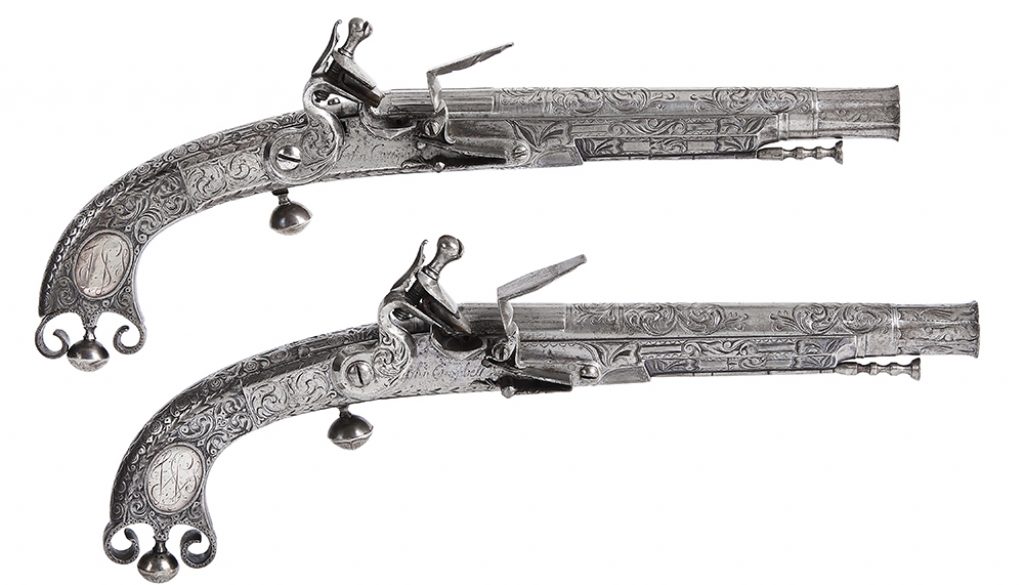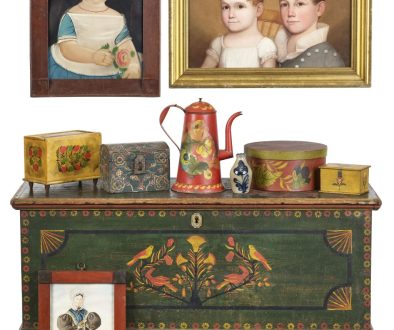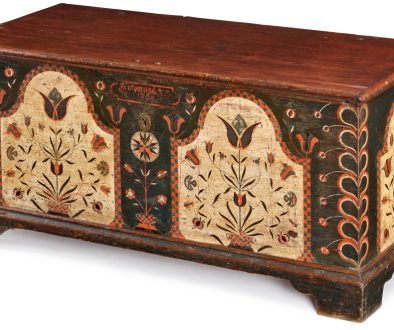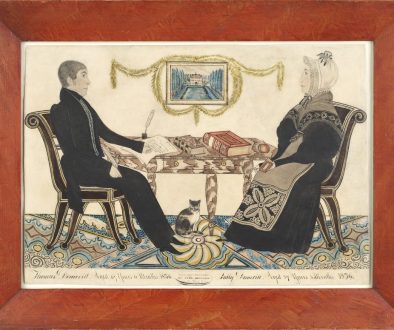Is That a Doune Under That Kilt?
As someone who knows little to nothing about firearms, but knows plenty of the history of Scotland, my favorite lot of the November 17th Firearms, Sporting and Militaria sale is the exceptional matched pair of 18th c. Scottish flintlock pistols. The distinctive set are signed by John Campbell, member of the renowned gunsmith guild of Doune, Perthshire. The pair is a classic example of the Doune pistol, featuring an entirely steel construction (Scottish wood was generally unsuitable for making firearms), having scrolled ram’s horn butts, silver inlay of Celtic inspired foliate ornamentation, flared muzzles, and button-shaped triggers without trigger guards. They carry the highest pre-sale estimate of any item in November’s sale at $20,000 – $30,000.
Similar examples of Doune pistols are included in the collections of the Metropolitan Museum of Art and the National Museum of Scotland. Doune pistols were favorites among Highland clansmen, many having been fired during the Jacobite Rebellion, and were similarly favored by wealthy socialites as fashion accessories. Popular folklore suggests that the first shot fired in the American Revolution – the “shot heard around the world” – was from a Doune pistol, which currently resides in the Lexington Historical Society Museum in Massachusetts. In 2004, the historic Murdoch Pistol Factory site, where pistol-making began in Perthshire in 1678 was saved by the community from demolition. George Washington owned a pair of the famous pistols and upon his death bequeathed them to General Lafayette. Other famous owners of Doune pistols include Louis XIV of France, Peter the Great of Russia, and Queen Elizabeth. This pair is in a crisp, fine condition, a testament to their status as treasured heirlooms for over two centuries.
By: Kaitlyn Julian




